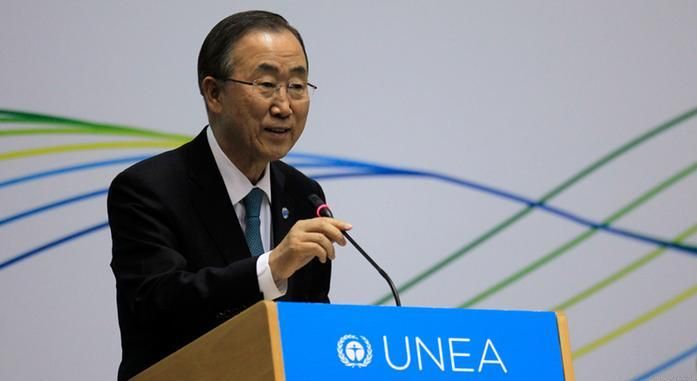UNEA pronounces Kenya a renewable energy world leader
UN chief calls on other countries to follow Kenya’s lead on renewable energy at the first United Nations Environment Assembly in Nairobi

The United Nations Secretary General Ban Ki-moon has urged other countries to follow Kenya’s lead on clean energy during the inaugural United Nations Environment Assembly (UNEA) in Nairobi, held on the 23-27th July 2014.
The summit was looking to build towards the UN Climate Change Summit in December in Lima,peru and ultimately the Sustainable Development Goals (SDGs) post 2015.
With approximately 80 per cent of its population having to generate its own power off grid, sustainable solutions are a hugely important stride away from the high costs and noxious fumes of kerosene oil.
This need has led to a wealth of innovation in the country, with inventions such as the percussion shaker - developed by former Faithless musician, Sudha Kheterpal - transforming the energy landscape.
The Assembly hosted over a thousand participants, including Government representatives, Environment ministers and key stakeholders, under the overarching theme of the SDGS - which will replace the soon to end Millennium Development Goals (MDGs) next year - alongside issues such as the illegal trade of wildlife.
Despite the wealth of innovative small scale initiatives sweeping the nation, it was the larger scale geothermal, wind and solar projects that catalysed such high praise, firstly from Secretary General Ban Ki Moon (pictured above right) and later the UN Under Secretary General and UN Environment Programme Executive Director Achim Steiner, who suggested that "we must begin to look to clean energy sources, as Kenya is doing with solar and wind farms".
Just over a month ago, on May 30th, the Kenyan Government took a huge leap in the progress of sustainable energy by cutting taxes levied on all products in the sector. This led to leading sustainable energy companies, such as SolarAid, being able to slash the prices of their products by 16% - the same percentage as the VAT added onto the solar sector in a much criticised move back in 2013. This is hugely important for ensuring that poorer families can afford small scale solar solutions, which can have a massive impact on health, livelihoods and education.
There is also a huge effort to involve women at the centre of the environmental effort in Kenya. This is due to their unique insight, as well as the unprecedented impact that climate change will have on their livelihoods. This led, last week, to the launch of a Beijing+20 campaign entitled 'Empowering Women, Empowering Humanity: Picture It!' by UN Women. UN Women's executive director Lakshmi Puri expressed the hope that the initiative would "create mass awareness and a broad movement in support of gender equality and women's rights".
The focus of such a drive towards sustainable energy in a country like Kenya is not solely driven by long term climate change objectives, but also more immediate impacts, such as the seven million premature deaths caused by air pollutants each year. Indeed, at the conclusion of the meeting, it was unanimously agreed that governments must have the prerogative to set standards and policies across multiple sectors to reduce emissions and manage the negative impacts of air pollution on health, the economy and overall sustainable development.
The second meeting of the High-level Political Forum on Sustainable Development will take place next week, 30 June - 9 July 2014, in New York. The theme will be “Achieving the Millennium Development Goals and charting the way for an ambitious post-2015 development agenda, including the sustainable development goals". There will then be several other meetings leading up to the UN Climate Summit, on September 23, again in New York.


